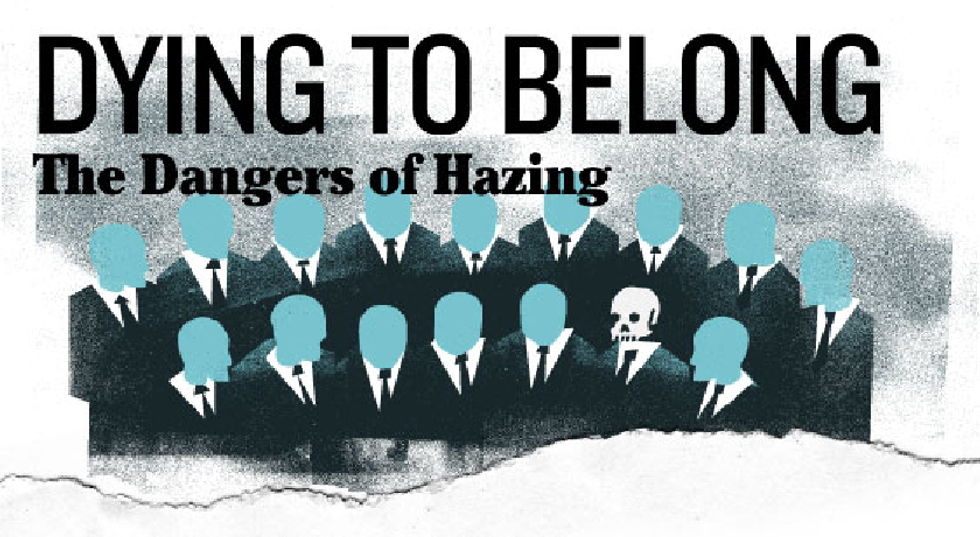September 2015, an NCAA athlete drunkenly stumbles into another student’s dorm room only to end up facing charges of property damage and sexual harassment.
October 2015, a college student pledging a fraternity spends almost six hours at an urgent care following medical ailments sustained during “Fratsing”, a period of time in which pledges are subjected to cruel and often demeaning tasks, which they must complete in order to earn acceptance into the group.
April 2016, Stony Brook University student hospitalized following a night of drinking. Further tests would reveal levels of anti-freeze in his system. He passed away a few nights later.
Were any of these incidents accidental? Or were they acts justified by the skewed idea of what is known as hazing?
Hazing is the practice of activities involving harassment, abuse or humiliation used as a way of initiating a person into a group. Hazing is prevalent in many different social groups, including but not limited to sports teams, gangs, fraternities and sororities. While being a part of campus groups can prove to be one of the most beneficial aspects of student life, hazing undermines the value of these experiences, posing a risk of physical and mental harm for students involved.
Student handbooks often define activities considered hazing as behaviors that deprive individuals of sleep, edible meals or personal hygiene, behaviors that expose individuals to dangerous or hazardous circumstances, including lockdowns or overcrowding rooms and locking exits, and in a broader sense, any behavior by which its nature has the potential to cause severe mental anxiety, mental distress, panic, human degradation or public embarrassment (SUNY Oswego, Student Handbook).
One of the biggest questions surrounding hazing is why? If individuals are subjected to such physical and mental distress, does anyone have a desire to go through a hazing period to join a group? What makes all of the pain and stress worth it?
The answer can be explained through social psychology and the theory of groups. Groupthink, a kind of thinking in which maintaining group cohesiveness and solidarity is more important than considering the facts in a realistic manner, demonstrates how psychology influences hazing. Further, individuals subjected to hazing sometimes fall victim to conformity, the phenomenon whereby an individual alters his or her beliefs, attitudes, or behavior to bring them in accordance with those of a majority, allowing for a “test of loyalty” among new group members and their higher ups.
There are widespread reasons as to why an individual decides to conform to something like hazing in which they might not normally agree with. Conformity is in part due to the idea of normative influence, that is to facilitate a desire to fit in, an individual will use others to know how to do so. This paired with obedience to authority, any action engaged in to fulfill the direct order or command of another person, creates an environment in which individuals will publicly comply and privately accept the thoughts and behaviors of the group.
Hazing is a violation of the New York State Penal Code and is subject to criminal prosecution. The arguments that the individuals subjected to hazing took part willingly, voluntarily assumed the risks or hardships of, or that no injury was actually suffered do not constitute as a defense and will not hold up in court.
So why then, do so many organizations get away with it? Because, in essence, the higher up members of these groups brainwash the new, prospective members, so much so that the prospective members dare not speak up against the group out of fear of being shunned or rejected.
Hazing of any sort is unacceptable. Too often does it lead people to suffer long term mental and psychical infirmities and the only way to further prevent this is to crack down on organizations participating in such activities.
Join the fight and stand up against hazing. Let its victims know that they are not alone and that they have support. Together, as a community we can work to end the practice of hazing once and for all.





















